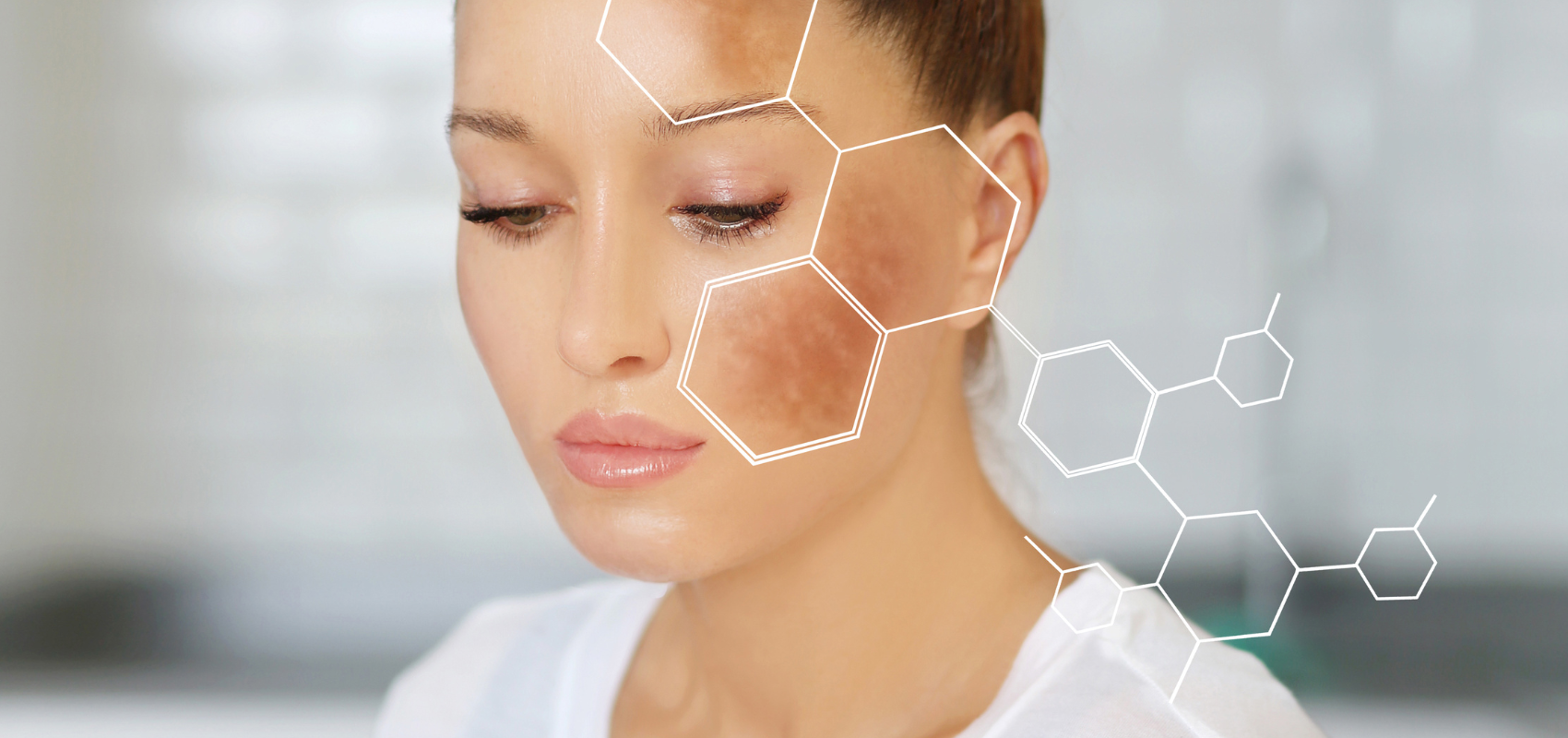Anti-pigmentation: retinol and tranexamic acid
How to erase age spots, freckles and moles from your face?
Why does skin pigmentation occur?
Pigmentation of the skin occurs due to uneven distribution of melanin: lighter or, conversely, darker areas appear. And here they are - freckles, moles and age spots.
With age, natural physiological changes occur in the human body, which can affect skin pigmentation: a decrease in the level of sex hormones, photoaging, and endless stress affect.
How to deal with pigmentation
Age spots can occur at any age, both in young girls and older women. However, they most often appear after 35-40 years. In rare cases, age spots disappear on their own, more often it takes a lot of effort to eliminate them.
There are many methods to combat pigmentation. In this article, we will consider two effective components that can help in the fight against pigmentation — retinol and tranexamic acid.
The power of retinol
The network is full of videos about the negative experience of using retinol: they began to smear, and the whole skin was “sprinkled". Let's figure out what's going on.
What is retinol?
Retinol is a form of vitamin A that is widely used in cosmetology to combat signs of skin aging, acne and pigmentation. It is one of the main anti-aging components with proven effectiveness.
How often can retinol be used
If you have never used retinol products before, introduce it into the care gradually: 1-2 times a week is enough to start with. And only after 3 weeks, if the skin reacts well, you can increase the number of procedures to 3 times a week or more often (if necessary).
The effect of retinol
Retinol is a highly active component, it cannot be combined with vitamin C or ANA and BHA acids, so as not to overload the skin. At first, rashes and redness may occur, this is normal: the skin gets used to and accumulates the remedy, bringing out all the long-standing problems. The anti-aging effect will have to wait a few months, but the wait is worth it!
Retinol against pigmentation
Retinol stimulates the renewal of skin cells, so pigmented spots become less noticeable, and the skin evens out. Retinol also helps to reduce melanin production and has antioxidant properties. The result is that the skin is protected from free radicals that provoke aging.
Tranexamic acid
In medicine, it is used to stop bleeding, and in cosmetology, tranexamic acid is used to combat pigmentation.
How does tranexamic acid work?
Tranexamic acid blocks enzymes involved in the production of melanin. It helps to reduce pigmentation and brightens the skin. In the course of research, it has been noticed that even small doses whiten age spots and reduce redness, while not irritating the skin and not increasing its sensitivity to the sun.
The acid helps not only to remove existing age spots, but also to prevent the appearance of new ones.
What to combine tranexamic acid with
It is ideal to use it with oil-based products - this way it penetrates better into the deep layers of the epidermis. Another good companion for tranexamic acid is niacinamide (vitamin B3).
Features of Japanese anti-pigmentation care
In Japan, products with retinol and tranexamic acid are actively used, but they are careful during colds. It is believed that anti-pigmentation care does not go well with the components that make up antiviral drugs.
Goods
All
12
SKINCARE
7
Face Mask
1
Sunscreen
1
Сosmeceuticals
2
Basic care
7
Extra care
1
Placental cosmetics
1
Pigmentation treatmen
3
Skin Types
1
BATH&BODY
1
Products for body
1
Winter Deals
1


